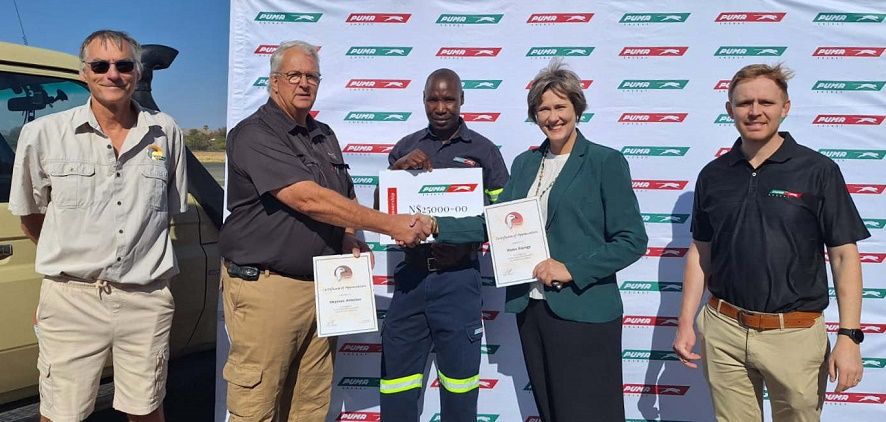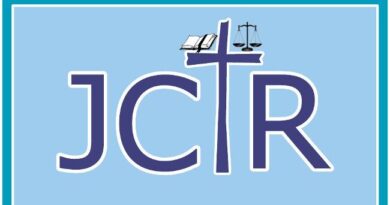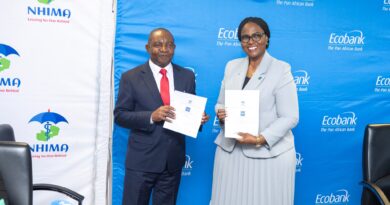Puma Energy Supports 2024 Namibian Vulture Survey with Aviation Fuel Sponsorship
Puma Energy Namibia has announced its sponsorship of aviation fuel for an important aerial survey aimed at monitoring the vulture population in the western Namib Desert. Scheduled for late October, the survey will span four days and involve 22 hours of flight time along pre-planned routes.
During the fuel handover ceremony, Adell Samuelson, General Manager of Puma Energy Namibia, highlighted the significance of the survey for wildlife conservation. “The vulture population survey is essential for the conservation of Namibia’s wildlife. It is through initiatives like this that we can track and study the endangered vulture population,” she stated. “As Puma Energy, we are pleased to support wildlife conservation and raise awareness about the threats facing these vital birds.”
The aerial survey, part of the Vulture Namibia project, will be conducted under a research permit from the Ministry of Environment and Tourism and supervised by officials from the ministry. Peter Keil, Managing Director of Skycore Aviation, underscored Puma Energy’s pivotal role in this endeavor, noting their invaluable partnership over the past five years.
The Vultures Namibia project, initiated in 1991 by retired Nature Conservation official Peter Bridgeford, has faced challenges in recent years. Historically, the project identified 80 to 100 breeding pairs of vultures, but drought conditions have significantly impacted food availability, reducing the number of breeding pairs counted annually to about 40.
Vultures, especially the endangered Lappet Faced Vulture, play a critical role in Namibia’s ecological system. They help clean up the environment by consuming carcasses, which in turn allows smaller birds to access the food source. However, their populations have drastically declined due to threats such as poisoning, poaching, and conflicts with commercial farming practices.
Bridgeford explained that Lappet Faced Vultures typically have concentrated breeding areas, where they both occupy existing nests and build new ones each year. Unfortunately, the need to travel further for food puts them at risk, as they often become collateral damage in farming efforts to eliminate “problem animals” like jackals. Current research is focusing on various types of poisoning, which remain the primary threat to these birds.
During the survey, the aircraft will fly at safe altitudes to identify vulture chicks in their nests. The GPS coordinates of these nests will be logged, allowing ground teams to reach them by vehicle. Scientific data will be collected from the chicks, which will be tagged, ringed, and have blood samples taken for research purposes. Larger chicks will even be fitted with satellite trackers to further aid conservation efforts.
Additionally, tagged vultures have been reported by tour guides and tourists from as far away as the Okavango Region, providing invaluable data that contributes to ongoing research.
Photo: Mrs Adell Samuelson, General Manager of Puma Energy Namibia, handed over the donation of aviation fuel to Mr Peter Keil, Managing Director of Skycore Aviation. Left is Mr Holger Kolberg from Vultures Namibia. In the middle, Mr. Caster Mafwizo, Puma Energy’s Aviation Depot Manager, and right Mr. Kevin Kruger, Puma Energy’s Aviation Regional Commercial Manager: Southern and West Africa.
source: Namibia Economist



